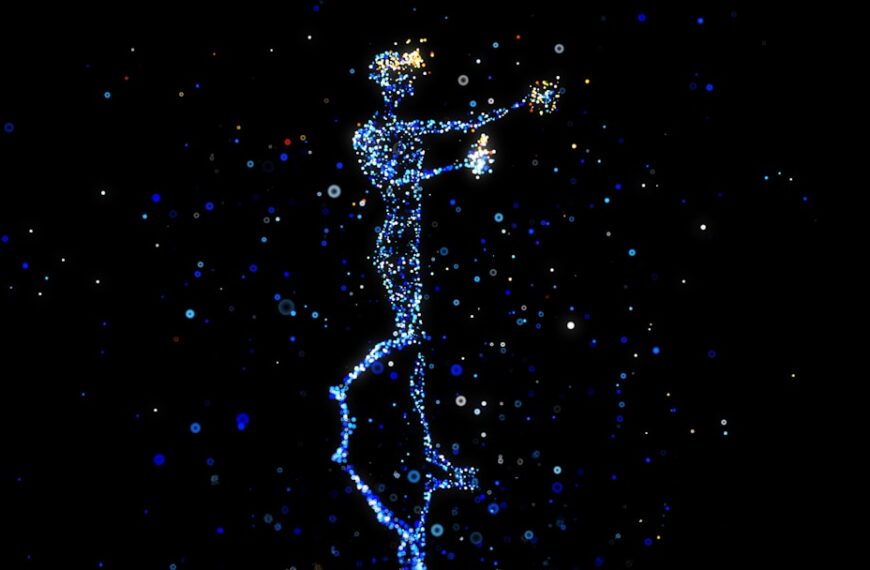As a result of technology breakthroughs that have revolutionized media consumption and interaction, entertainment has experienced a significant transformation in the digital age. The availability of a wide variety of content to consumers has increased thanks to the internet and digital platforms. An era of convenience, interaction, and personalisation in entertainment has been brought about by digital innovations such as social media and streaming services.
Key Takeaways
- Entertainment has evolved significantly in the digital age, with the rise of streaming services, virtual reality, social media, and artificial intelligence.
- Streaming services have had a major impact on traditional media, leading to changes in consumer behavior and the way content is produced and distributed.
- Virtual reality and augmented reality are shaping the future of entertainment, offering immersive experiences and new storytelling possibilities.
- Social media has transformed celebrity culture, providing a platform for direct interaction between celebrities and their fans.
- Artificial intelligence is playing an increasingly important role in entertainment, from content recommendation algorithms to virtual assistants and chatbots.
The emergence of streaming services has completely changed how people consume media by giving them instant access to vast content libraries. Thanks to services like Netflix, Hulu, & Amazon Prime, on-demand movie and TV show viewing has become possible, upending established media distribution methods. In addition to altering watching preferences, this move to digital streaming has had an effect on the creation and dissemination of entertainment content. The advent of original content created by streaming services has increased the competition for established media companies, forcing them to change with the times and stay relevant in an ever-changing market.
The Traditional Media’s Decline. Consequently, in order to stay competitive, traditional media companies have had to review their business strategies & adjust to the new digital environment. The way media is consumed has also changed significantly as a result of this shift, with many users choosing the customization and flexibility that streaming services provide. A New Chapter in Content Production History. The development and delivery of content have been significantly impacted by the emergence of streaming services.
Traditional media companies are under pressure to make investments in their own original content in order to maintain viewership and remain relevant, given the growing demand for original programming from platforms such as Netflix and Amazon Prime. Future Trends in Media Consumption. Due to this shift, content is now produced and distributed differently, with a focus on making shows that are of a high caliber and suitable for binge-watching, all while meeting the needs of modern digital audiences. It will be interesting to see how traditional media companies respond to the shifting needs of consumers and the emergence of streaming services as the media landscape continues to change.
The entertainment sector is about to undergo a revolution thanks to virtual reality (VR) & augmented reality (AR), which provide immersive and interactive experiences that go beyond conventional media consumption. While augmented reality (AR) superimposes digital content on the real world, virtual reality (VR) technology lets users enter entirely virtual environments, resulting in a blended experience that improves the user’s perception of reality. With new opportunities for gaming, live events, and storytelling, these technologies have the power to completely change how we consume entertainment.
With businesses creating VR & AR experiences for games, movies, & live events, the use of VR and AR in entertainment has already started to take off. With VR headsets providing players with a more immersive and interactive gaming experience, virtual reality gaming in particular has experienced significant growth in the last few years. AR technology has also been utilized to improve live performances and events by giving audiences interactive features that make it harder to distinguish between the real and virtual worlds.
More cutting-edge uses of VR and AR in entertainment, such as interactive storytelling and virtual concerts, are likely to come as these technologies develop. Social media has changed our perception of and interactions with public figures, having a significant impact on celebrity culture. Thanks to social media sites like Instagram, Twitter, and TikTok, celebrities can now communicate directly with their fans, sharing intimate moments, showcasing their work, and interacting with them in real time. The distinction between celebrities and their fans has become more hazy due to their increased accessibility, fostering a more personal and engaged bond that goes beyond conventional celebrity worship. Social media has also democratized fame by enabling anyone to establish an online presence and become an influencer or micro-celebrity.
As a result, the dynamics of celebrity culture have changed, with social media influencers now having a big impact on popular culture and consumer behavior. Influencer marketing has thus been added to traditional celebrity endorsements as companies look to leverage social media personalities’ reach & engagement. From chatbots and virtual assistants to content recommendation algorithms, artificial intelligence (AI) is becoming more and more common in the entertainment industry. Businesses are able to personalize content recommendations and develop focused marketing campaigns by utilizing AI-powered systems to analyze consumer behavior and preferences.
Also, algorithms are being used in AI to produce writing, art, and even music, which is improving the creative process in the entertainment industry. Artificial intelligence (AI) is being used in film & television production to improve visual effects and optimize workflows, leading to more productive and economical production processes. Also, by offering interactive experiences & tailored recommendations based on user preferences, AI-powered virtual assistants are being used to improve the entertainment industry’s customer experience. We may anticipate seeing even more cutting-edge uses of AI in entertainment as the field develops, from intelligent algorithms driving immersive virtual worlds to AI-generated content. The Development of Video Games into Spectator Sports.
Due to the growth of esports, professional gamers are now able to compete in live and online tournaments that draw millions of spectators. Due to big brands and media companies realizing the potential of this emerging industry, there has been a surge in investment & interest in esports. The Social and Cultural Phenomenon of Gaming.
Due to the popularity of multiplayer games like League of Legends and Fortnite, which draw large audiences & influence popular culture, gaming has become a social & cultural phenomenon. The rise of online gaming communities and streaming services like Twitch, where players can interact with one another and share their gameplay experiences, is another result of gaming’s social component. Esports and Gaming’s Future. More innovation in immersive experiences, interactive storytelling, and competitive gaming events should be expected as gaming develops as a medium for entertainment.
As the entertainment industry develops further, a number of ethical and legal issues have been brought up by the incorporation of technology. To guarantee that technology is used responsibly in entertainment, a number of difficult obstacles must be overcome, ranging from worries about data security and privacy to issues with AI’s effects on the creative industries. Concerns concerning the possibility of disinformation and content manipulation in media have also been raised by the development of deepfake technology. Deepfake technology makes it possible to produce phony audio and video recordings that are incredibly lifelike, which begs concerns about the veracity of digital media & its possible influence on public opinion. Concerns regarding intellectual property rights and copyright violations in relation to artificial intelligence-generated content and virtual experiences are also still being discussed.
In conclusion, a new era of entertainment marked by creativity, interaction, and personalization has been brought about by the digital age. The way we interact & consume media has changed dramatically as a result of technology, from virtual reality experiences to streaming services. To ensure that technology is used responsibly and ethically in the entertainment industry as it develops, it will be critical to address the ethical and legal ramifications of this use.
If you’re interested in exploring the intersection of technology and media, you may want to check out this article on Tablet Jankari’s About Us page. This website provides insights into the latest tech and entertainment news, offering a unique perspective on how technology is shaping the media landscape. Whether you’re a tech enthusiast or a media professional, this article can provide valuable insights into the evolving relationship between technology and entertainment.
FAQs
What is the intersection of technology and media?
The intersection of technology and media refers to the ways in which advancements in technology have impacted the creation, distribution, and consumption of media content such as movies, music, television, and video games.
How has technology changed the entertainment industry?
Technology has revolutionized the entertainment industry by enabling the creation of high-quality digital content, the development of streaming platforms, and the use of virtual reality and augmented reality in immersive experiences.
What are some examples of technology in entertainment?
Examples of technology in entertainment include streaming services like Netflix and Spotify, virtual reality experiences in gaming and film, and the use of artificial intelligence in content recommendation algorithms.
How has technology affected the way we consume media?
Technology has made media more accessible and convenient, allowing consumers to access content on-demand from a variety of devices such as smartphones, tablets, and smart TVs.
What are the future trends at the intersection of technology and entertainment?
Future trends at the intersection of technology and entertainment include the continued development of virtual reality and augmented reality experiences, the use of artificial intelligence in content creation, and the expansion of streaming services and original content production.



